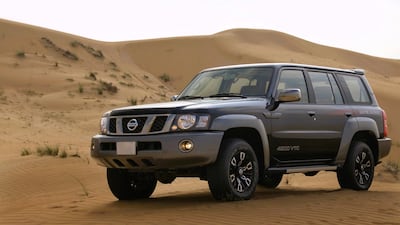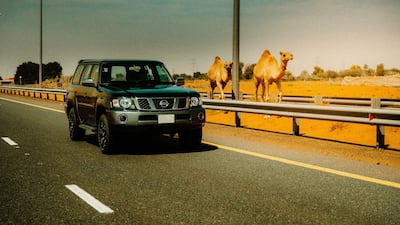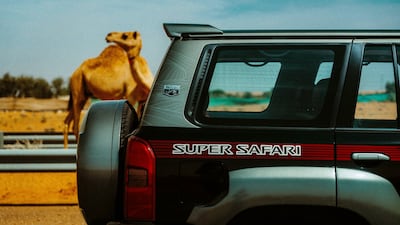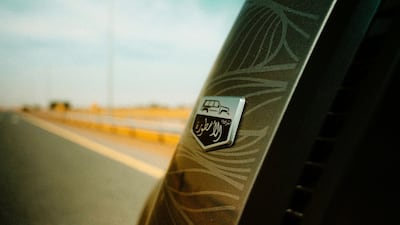An all-new special edition Nissan Patrol has just hit UAE shores.
Going by the name Al Ostoura, meaning The Legend, the latest version of one of the Middle East’s most iconic vehicles, marks a last hurrah for the Super Safari's fifth generation.
Nissan says the stylings of the car are a nod to its traditional links to the region – citing design enhancements that improve on the principles that made it a popular choice in the first place. That is, ease of maintenance, desert capability and endurance, as well as trustworthiness in extreme heat.
A set of new badges, both inside and out, and a dune-patterned trim provide part of its cosmetic upgrade, alongside some fresh motifs featuring Arabic calligraphy.
Robustness has traditionally been a key part of a Super Safari’s very DNA. It has always been a car you can use in urban areas, but it’s far more suited to some of the most daunting rocky and sandy terrain than many of its rather more city-smart SUV siblings.
Not least, of course, because of its significant ground clearance, something that also makes it useful for speed bumps in more built-up terrain.
Power in Al Ostoura comes from a 4.8-litre six-cylinder engine, which is sufficient to deliver 280hp and 451Nm of torque.
The car also has cruise control, tyre-pressure monitoring, anti-lock braking, airbags and a system that prevents understeer and oversteer by reducing speed and applying the brakes individually on specific wheels when going in and out of corners.
The Super Safari first arrived in the late 1990s, but production stopped in 2010. However, customer demand saw the vehicle return just half a dozen years later.
Like its powerhouse bandmate the Nissan Patrol Nismo, Al Ostoura is a GCC exclusive. It is available now, with exact pricing yet to be announced, but a standard Super Safari starts at a little more than Dh160,000.





